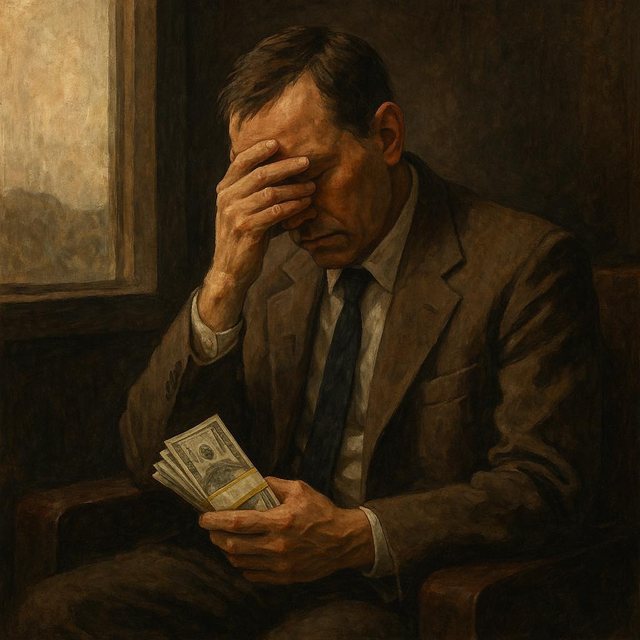
How does a person become corrupt?


A person is not born corrupt. And in most cases, they do not even enter life with the idea of deceiving, stealing, selling their conscience. A person becomes corrupt. Slowly. Silently. Often without realizing it.
I have asked myself many times: What happens in a person's soul until they manage to accept becoming part of a system that uses, abuses, buys and sells everything, including dignity?
I have heard answers that range from fatalism ("that's how it is done in this country") to cynicism ("the fool is the one who does not benefit"). But in my work as a psychiatrist and psychotherapist, I know that ready-made and superficial answers are not enough for me. I am interested in the slippage. What happens inside a person before he takes the bribe, makes the bargain, remains silent when he should speak. It starts
with a gap
At the root of every moral breakdown, there usually lies a personal gap: a lack of self-esteem, a fear of lack, a sense of worthlessness that is covered up with a facade. There are people who, for many historical, social, emotional reasons, never feel enough. And when given the opportunity, they seek to fill that void with any form of power or wealth.
But power does not heal the void. It feeds it. It makes it hungrier and more savage. And the person begins to do what he would never have imagined before. Not out of malice, but out of the insatiability that arises from emptiness.
Then comes the justification.
The person cannot easily admit that he is doing something wrong. So he builds stories to make it bearable:
• “Others are worse than me.”
• “I am not getting much, just a little.” • “I
am doing it for the family.”
• “If I don’t do it, someone else will.”
And so, with one hand helped by the system and the other by self-deception, a kind of moral anesthesia begins. The person stops feeling guilty. And when he no longer feels guilty, everything is permitted.
There is a system all around that makes it easy to corrupt
. There are places where honesty is a burden. Where being correct does not give you strength, but leaves you aside. In such a system, corruption is not a deviation but the norm, evil is not hidden but pretended to be clever, and evil is not fear but strategy.
In this reality, a person who enters with idealism begins to feel “stupid”. And when faced with the choice between survival and ethics, many choose to survive. At a cost that is not immediately noticeable: the loss of self.
Corruption is not only moral. It is also psychological.
I have seen it in therapy with people who have been part of the system: beneath the skin of a “successful” life, there is often unspoken shame, denied childhood, undiscovered anger, and a loneliness that neither money nor power can heal.
Because the man who corrupts himself, no longer trusts anyone. Not even himself!!! Every relationship becomes a bargain. Every feeling becomes a calculation and every ideal a naive memory of youth.
And yet…
It is not inevitable. A man can stay. He can say no. But for this, a daily exercise of honesty with himself is needed. You must accept your gaps without filling them with facades. To live not for what brings you profit, but for what preserves your humanity.
I have seen people who have stayed. Even though they have been despised, ridiculed, punished. They are rare. But they are necessary. Because without such people, a society has no hope.
Corruption does not begin with money. It begins with an internal choice not to face oneself.
And honesty is not a quality. It is a daily decision not to sell your soul for a place at the table of the strong.

The Ukraine summit that ignored the tough questions
ideas
top
Alfa recipes
TRENDING 
services
- POLICE129
- STREET POLICE126
- AMBULANCE112
- FIREFIGHTER128



























